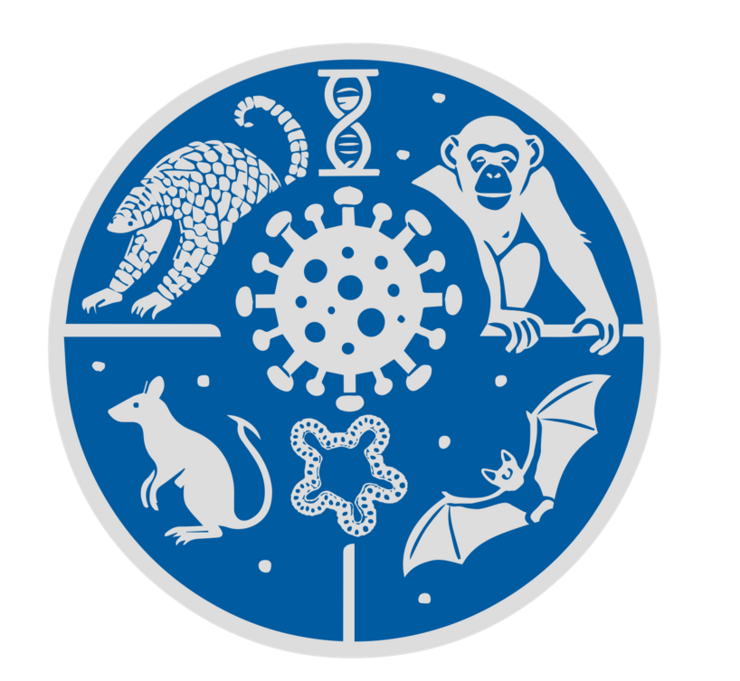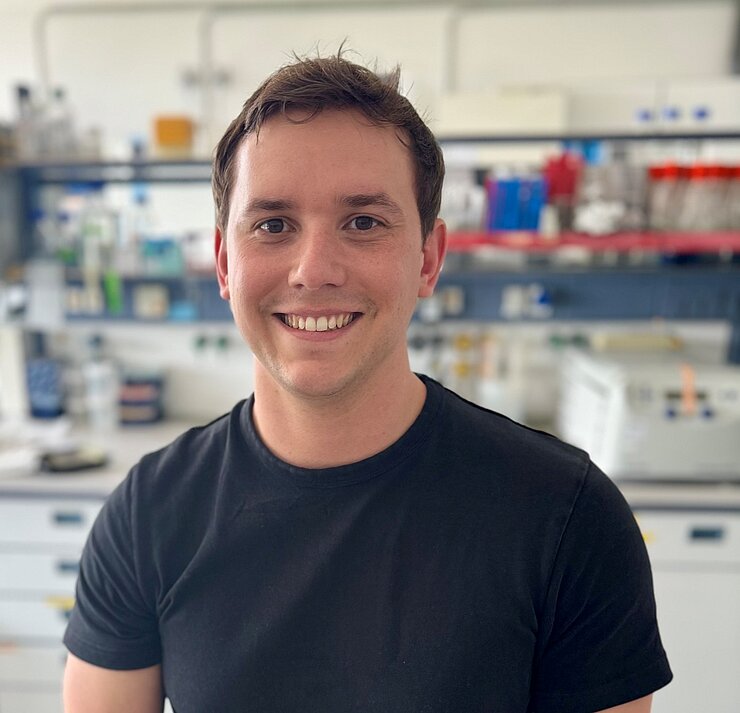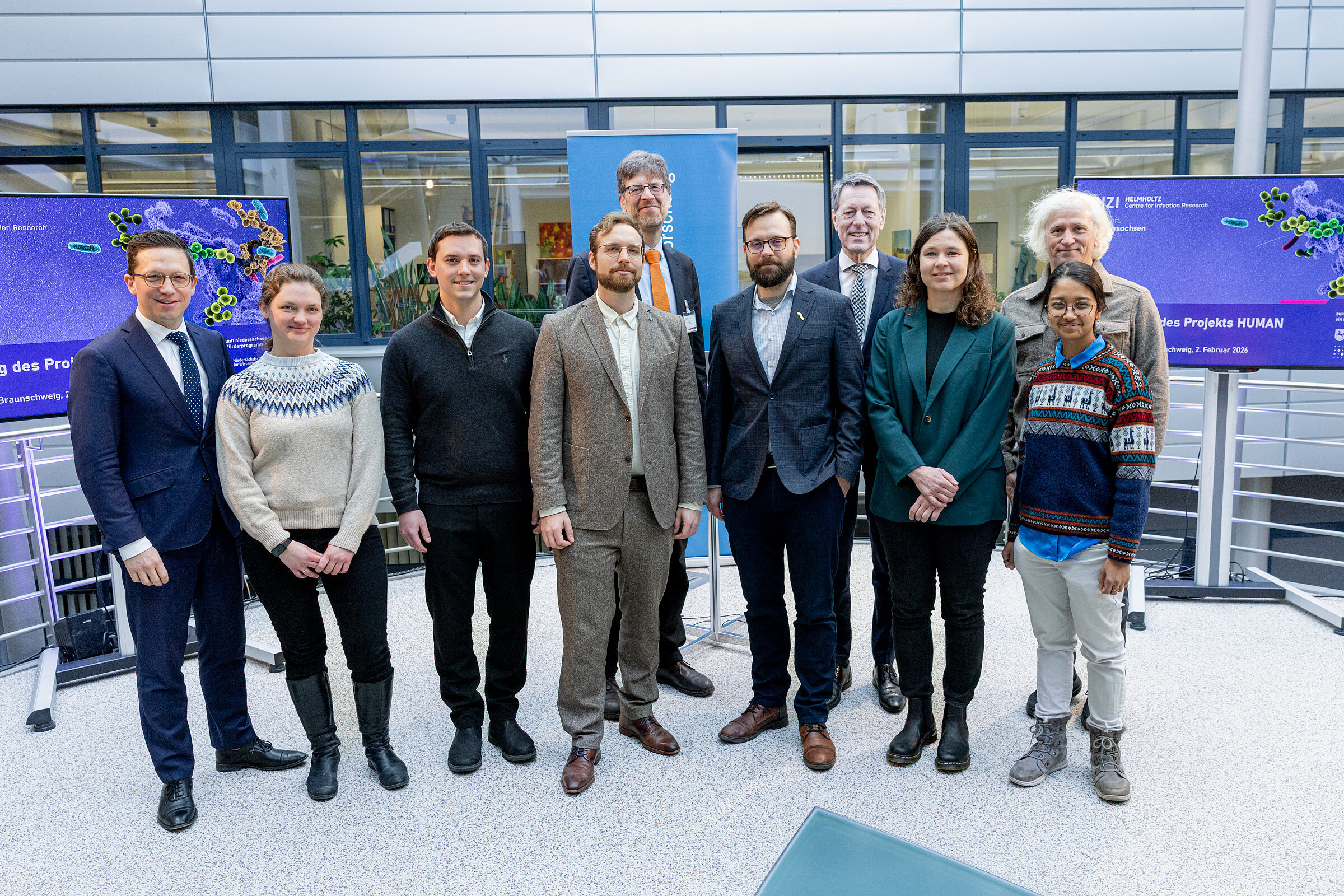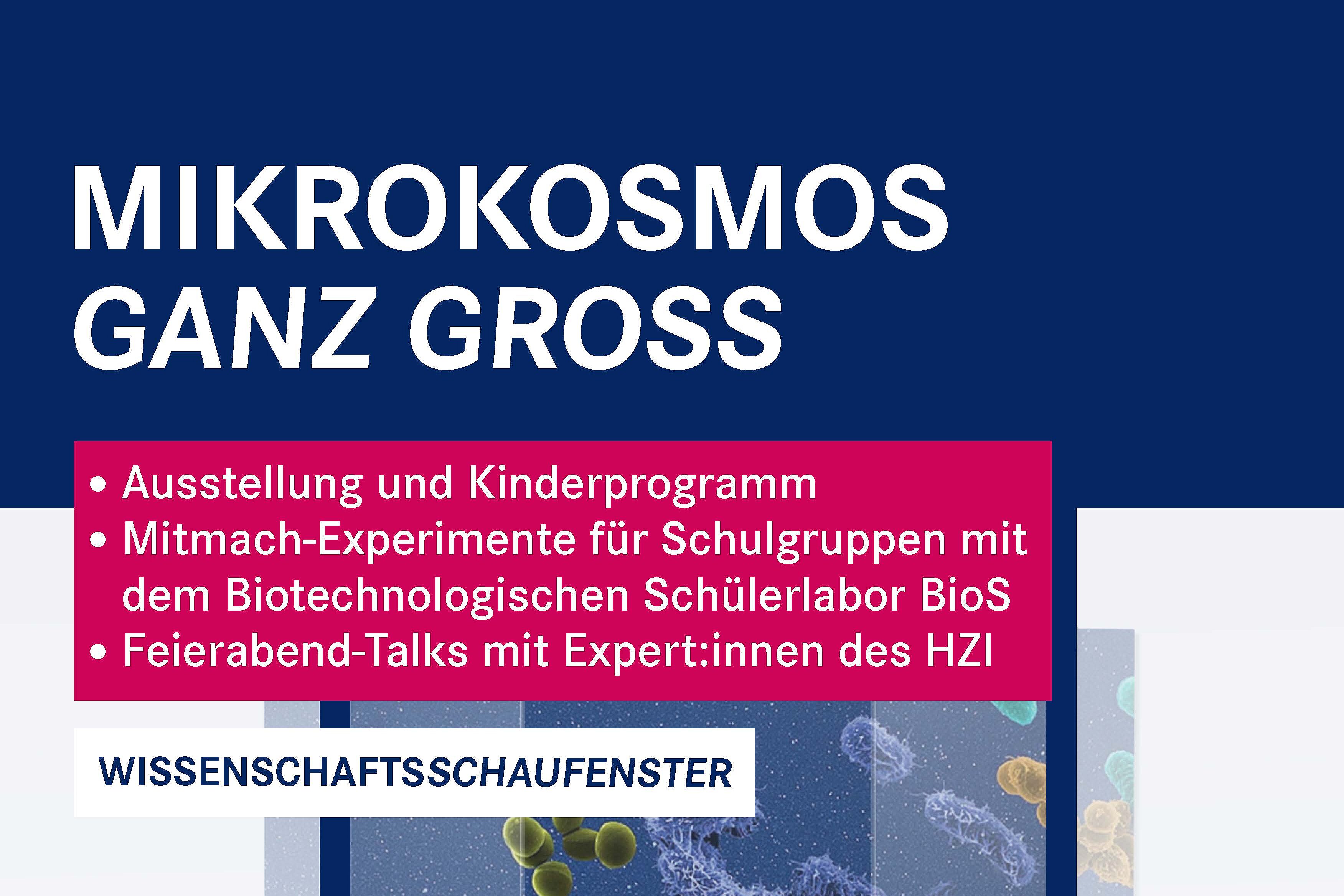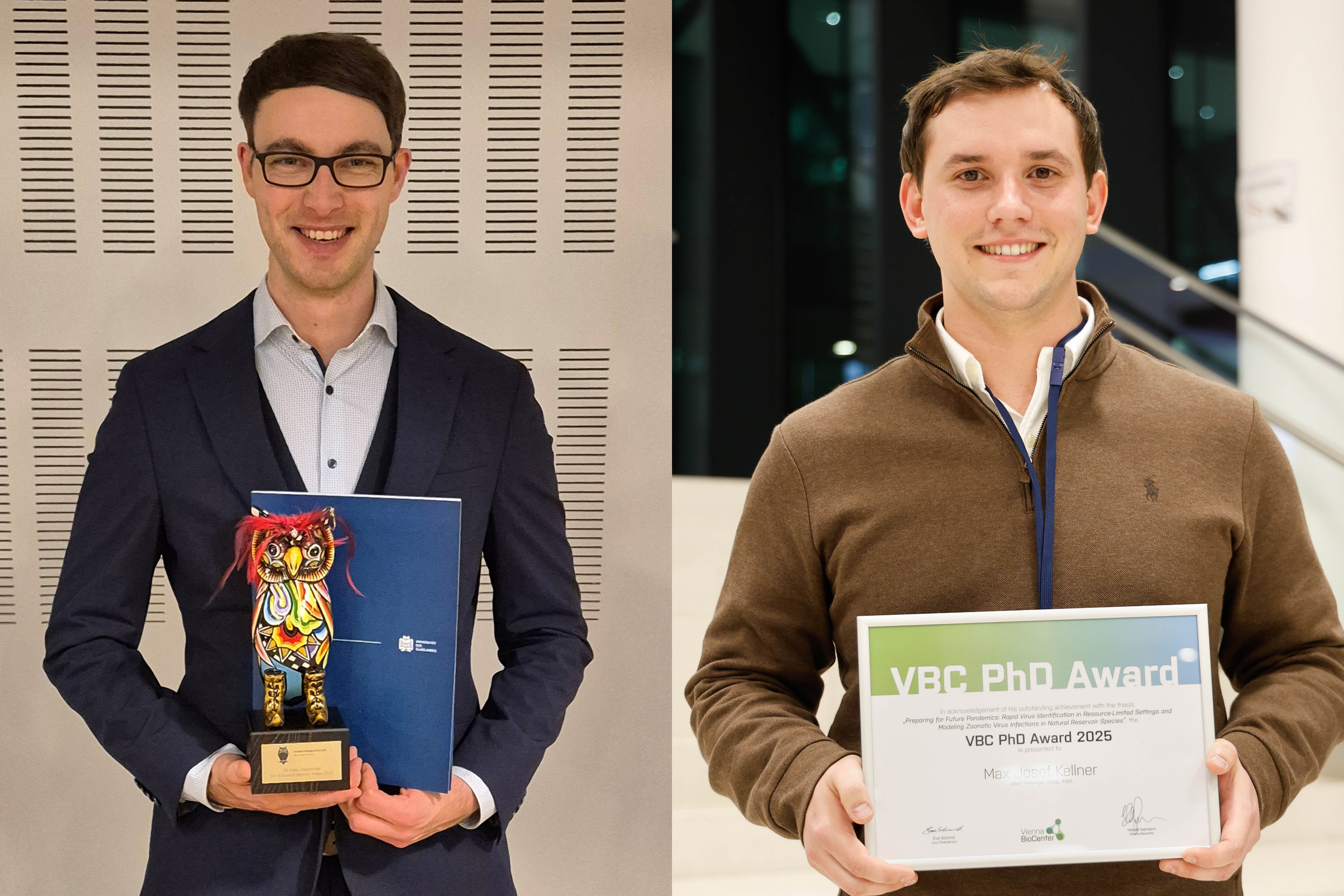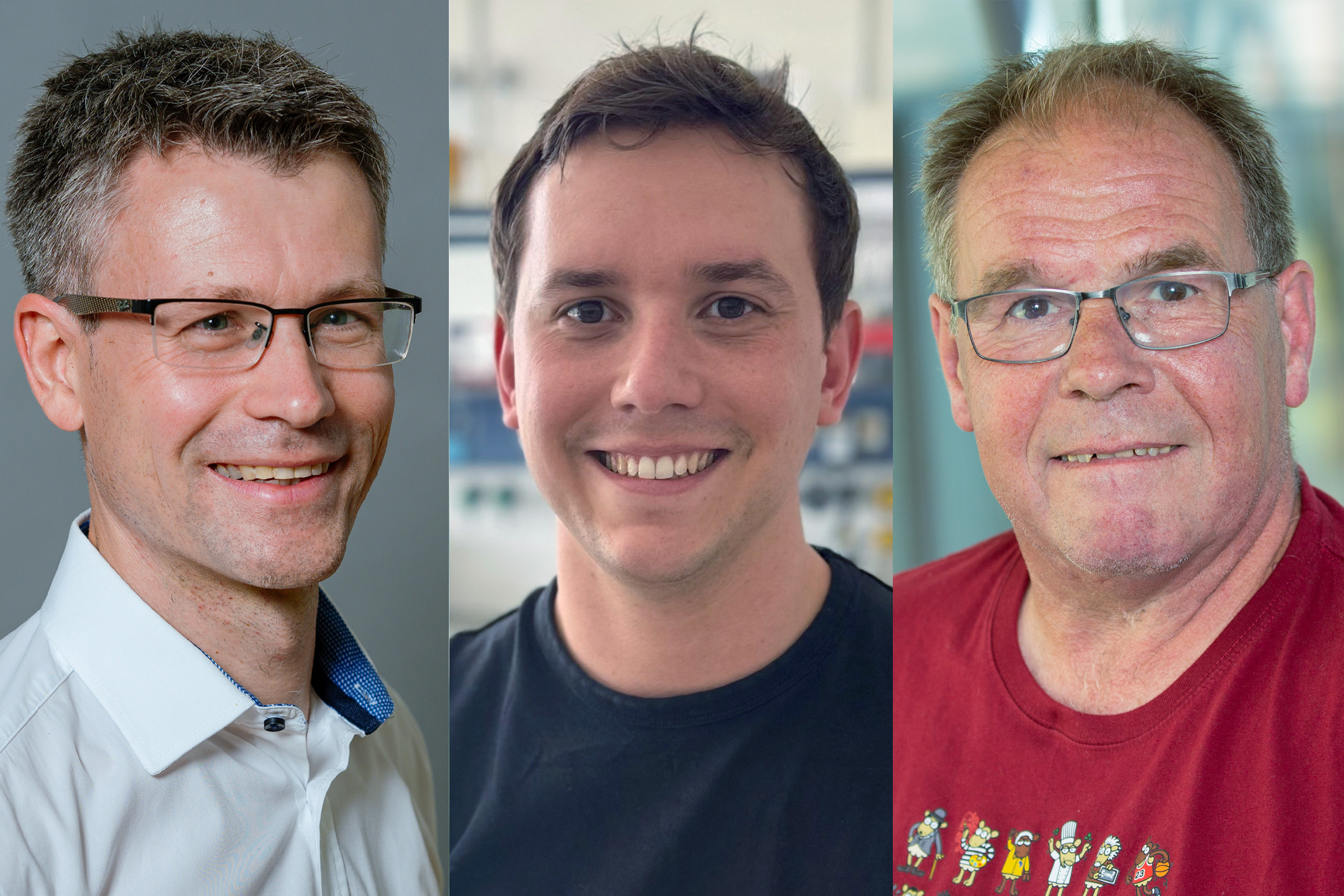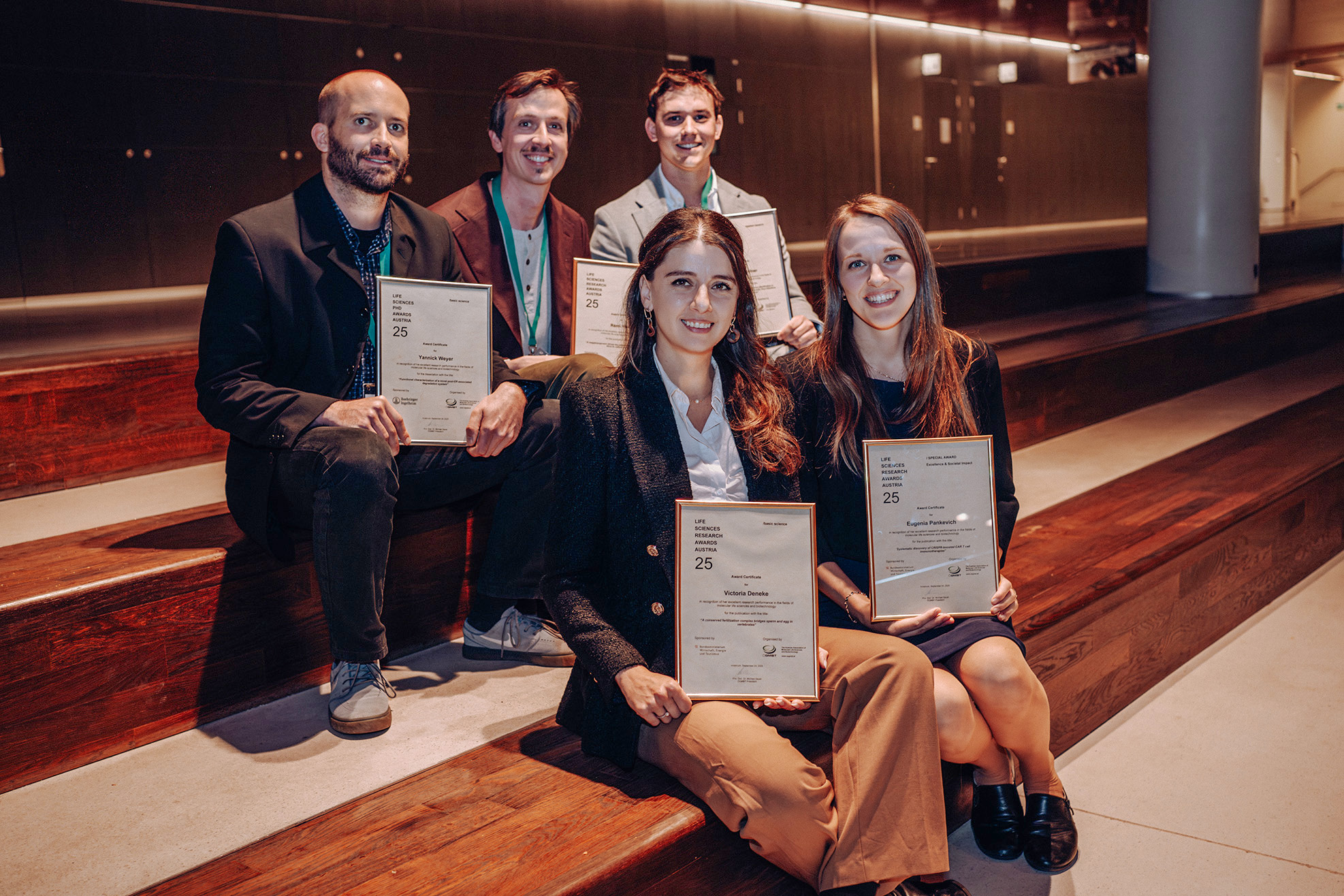
Laboratory for Virus-Host Co-Evolution
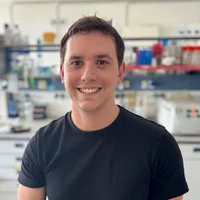
Our research
Viruses depend on host organisms to complete their life cycle and persist as biological entities. Over the course of evolution, many have adapted to specific animal species, maintaining long-term associations with these so-called natural reservoir hosts. When zoonotic viruses cross species barriers and infect non-adapted hosts such as humans, they can cause severe disease and trigger global health crises. Throughout history, such spillover events have repeatedly led to epidemics and pandemics, such as the AIDS and COVID-19 pandemic.
Despite extensive research into viral adaptation strategies, the mechanisms underlying viral disease resilience in natural hosts remain poorly understood—partly because they have evolved over millions of years of coexistence with viruses. This raises several fundamental research questions:
- How do natural hosts tolerate infections that cause severe disease in other species?
- What makes a virus pathogenic in non-adapted hosts?
- Can naturally evolved resilience mechanisms in reservoir hosts be translated into therapeutic strategies to prevent or mitigate viral diseases in animals and humans?
At the Laboratory for Virus-Host Co-Evolution (VICO), we investigate these questions by examining the molecular interplay between viruses and their hosts. Our research focuses on evolutionarily ancient mammalian species that harbor human-pathogenic viruses yet remain asymptomatic upon infection. These include bats, rodents, insectivores, certain livestock species, and non-human primates.
To model these interactions, we integrate organoid technology with functional genomics approaches such as CRISPR-Cas9 gene editing and single-cell transcriptomics to investigate how genetic differences between host species shape cellular responses to viral infection.
Through this approach, we aim to advance the understanding of virus-host co-adaptation and pave the way for the development of innovative antiviral strategies, guided by a One Health perspective that considers the interconnected health of humans, animals, and ecosystems.
Our research
Viruses depend on host organisms to complete their life cycle and persist as biological entities. Over the course of evolution, many have adapted to specific animal species, maintaining long-term associations with these so-called natural reservoir hosts. When zoonotic viruses cross species barriers and infect non-adapted hosts such as humans, they can cause severe disease and trigger global health crises. Throughout history, such spillover events have repeatedly led to epidemics and pandemics, such as the AIDS and COVID-19 pandemic.
Despite extensive research into viral adaptation strategies, the mechanisms underlying viral disease resilience in natural hosts remain poorly understood—partly because they have evolved over millions of years of coexistence with viruses. This raises several fundamental research questions:
- How do natural hosts tolerate infections that cause severe disease in other species?
- What makes a virus pathogenic in non-adapted hosts?
- Can naturally evolved resilience mechanisms in reservoir hosts be translated into therapeutic strategies to prevent or mitigate viral diseases in animals and humans?
At the Laboratory for Virus-Host Co-Evolution (VICO), we investigate these questions by examining the molecular interplay between viruses and their hosts. Our research focuses on evolutionarily ancient mammalian species that harbor human-pathogenic viruses yet remain asymptomatic upon infection. These include bats, rodents, insectivores, certain livestock species, and non-human primates.
To model these interactions, we integrate organoid technology with functional genomics approaches such as CRISPR-Cas9 gene editing and single-cell transcriptomics to investigate how genetic differences between host species shape cellular responses to viral infection.
Through this approach, we aim to advance the understanding of virus-host co-adaptation and pave the way for the development of innovative antiviral strategies, guided by a One Health perspective that considers the interconnected health of humans, animals, and ecosystems.
Dr Max Kellner
Natural virus–host interactions do not represent a battle for dominance, but rather a dynamic equilibrium resulting from millions of years of co-evolution.
Born and raised in Vienna, Max Kellner gained his first laboratory and publication experience during my undergraduate studies at the University of Vienna, working in Michael Nodine’s group at the Gregor Mendel Institute (GMI). There, he helped develop methods to study gene regulation by microRNAs and their role in plant embryogenesis. As a Master’s student, he joined Feng Zhang’s lab at the Broad Institute of MIT and Harvard (USA), where he worked on CRISPR/Cas13-based bacterial immunity proteins, focusing on their application in virus diagnostics (SHERLOCK) and targeted gene regulation in mammalian cells.
Kellner began his doctoral training at the University of Cambridge in Madeline Lancaster’s lab (MRC Laboratory of Molecular Biology), where he investigated evolutionary aspects of human brain development using stem cells and 3D organoids. During the first COVID-19 lockdown, he had to temporarily return to Vienna and joined the Institute of Molecular Pathology (IMP) as a guest researcher, where he played a leading experimental role in a team developing RT-LAMP-based rapid SARS-CoV-2 diagnostics. As part of a research collaboration with colleagues in Ghana, the project was further developed to enable more targeted and efficient detection of infections in rural regions of West Africa.
Following this work, Kellner permanently transferred to Vienna and completed his PhD at the Institute of Molecular Biotechnology (IMBA) in Josef Penninger’s lab. By developing novel organoid culture systems for bats, his dissertation project provided key insights into bat epithelial innate immune responses to highly pathogenic viruses such as Marburg virus and human coronaviruses like MERS-CoV and SARS-CoV-2.
Since April 1, 2025, Kellner has been leading the junior research group VICO (Virus-Host Coevolution) at the Helmholtz Centre for Infection Research (HZI). His research focuses on the molecular interactions between viruses and their hosts, with particular emphasis on evolutionarily shaped components of innate immunity that prevent infection and confer disease resilience in mammals.
Selected publications
Bat organoids reveal antiviral responses at epithelial surfaces. Accepted for publication in Nature Immunology. Nature Immunology 2025. DOI: 10.1038/s41590-025-02155-1.
Max J. Kellnerⴕ, Vanessa Monteil, Patrick Zelger, Gang Pei, Jie Jiao, Masahiro Onji, Komal Nayak, Matthias Zilbauer, Anne Balkema-Buschmann, Anca Dorhoi, Ali Mirazimi, Josef M. Penningerⴕ.
A lyophilized open-source RT-LAMP assay for molecular diagnostics in resource-limited settings. Life Science Alliance 2025. DOI: 10.26508/lsa.202403167.
Martin Matl*, Max J. Kellner*, Felix Ansah*, Irina Grishkovskaya, Dominik Handler, Robert Heinen, Benedikt Bauer, Luis Menéndez-Arias, Thomas O. Auer, Lucia L. Prieto-Godino, Josef M. Penninger, Vienna Covid-19 Detection Initiative (VCDI), Gordon A. Awandareⴕ, Julius Brenneckeⴕ, Andrea Pauliⴕ
A Rapid, Highly Sensitive and Open-Access SARS-CoV-2 Detection Assay for Laboratory and Home Testing. Frontiers in Molecular Biosciences 2022. DOI: 10.3389/fmolb.2022.801309
Max J Kellner*ⴕ, James J Ross*, Jakob Schnabl*, Marcus P S Dekens, Martin Matl, Robert Heinen, Irina Grishkovskaya, Benedikt Bauer, Johannes Stadlmann, Luis Menéndez-Arias, Andrew D Straw, Robert Fritsche-Polanz, Marianna Traugott, Tamara Seitz, Alexander Zoufaly, Manuela Födinger, Christoph Wenisch, Johannes Zuber, Andrea Pauliⴕ, Julius Brenneckeⴕ
Crimean-Congo haemorrhagic fever virus uses LDLR to bind and enter host cells. Nature Microbiology 2024. DOI: 10.1038/s41564-024-01672-3
Vanessa M Monteil, Shane C Wright*, Matheus Dyczynski*, Max J Kellner, Sofia Appelberg, Sebastian W Platzer, Ahmed Ibrahim, Hyesoo Kwon, Ioannis Pittarokoilis, Mattia Mirandola, Georg Michlits, Stephanie Devignot, Elizabeth Elder, Samir Abdurahman, Sándor Bereczky, Binnur Bagci, Sonia Youhanna, Teodor Aastrup, Volker M Lauschke, Cristiano Salata, Nazif Elaldi, Friedemann Weber, Nuria Monserrat, David W Hawman, Heinz Feldmann, Moritz Horn, Josef M Penninger, Ali Mirazimi.
Multiplexed and portable nucleic acid detection platform with Cas13, Cas12a, and Csm6. Science 2018. DOI: 10.1126/science.aaq0179
Jonathan S Gootenberg*, Omar O Abudayyeh*, Max J Kellner, Julia Joung, James J Collins, Feng Zhang.
* Equal contribution
ⴕ Co-corresponding authors
Publications
A complete list of publications can be found here.
